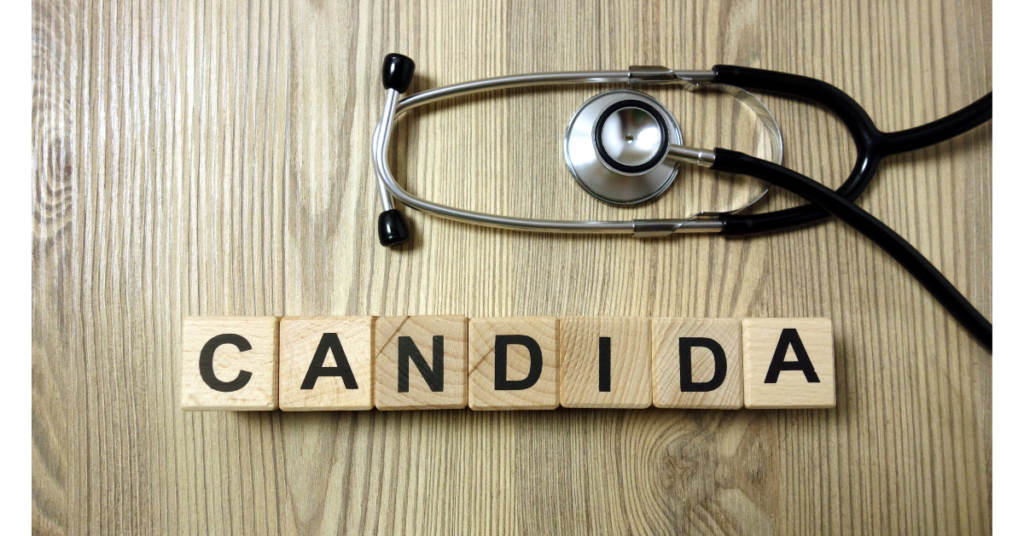What is Candida?
Candida is a fungal infection caused by Candida albicans, a bacterium / yeast that lives in the upper bowel of nearly everyone. Under normal circumstances it is kept in check by our immune system and the co-existing friendly bacteria. However, when the immune system is weakened and the friendly bacteria are reduced, this yeast can begin to multiply out of control, releasing toxins that interfere with a whole host of bodily functions.
Signs and symptoms
These are numerous and can be difficult to diagnose since they are not necessarily specific to Candida:
Thrush / Cystitis / fungal infections of the skin and nails.
Leaky gut syndrome: Candida can lead to undigested food particles being ‘leaked’ through the stomach and intestinal linings into the blood stream. This in turn results in a large number of allergies to food and chemicals.
Food / chemical allergies (see above): Bloating, heartburn, bad breath, and so on.
Fatigue / drowsiness / poor concentration, feeling ‘spaced out’.
Mood swings, depression, anxiety, and / or insomnia.
Muscle weakness / painful or swollen joints / poor co-ordination.
Dizziness / chest pains / shortness of breath.
Frequent headaches / dry mouth or throat / catarrh.
Causes
Long-term stress, which weakens the immune system.
Antibiotics, which can wipe out all the friendly bacteria in the gut that are keeping the yeast in check.
Oral contraceptive pill weakens the immune system.
Other drugs / environmental chemicals weaken the immune system.
A diet of refined carbohydrates, sugar, alcohol, and other yeast products can all increase the likelihood of Candida if the immune is already weak or if they are eaten in excessive amounts.
A damp climate and nutritional deficiencies can also play a part.
Diagnosis
Laboratory tests such as a gut fermentation test can determine whether you ferment ethyl alcohol after consuming glucose, as often happens with yeast overgrowth.
Other tests include analysing the blood antibodies or the amount of Candida in blood cells.

